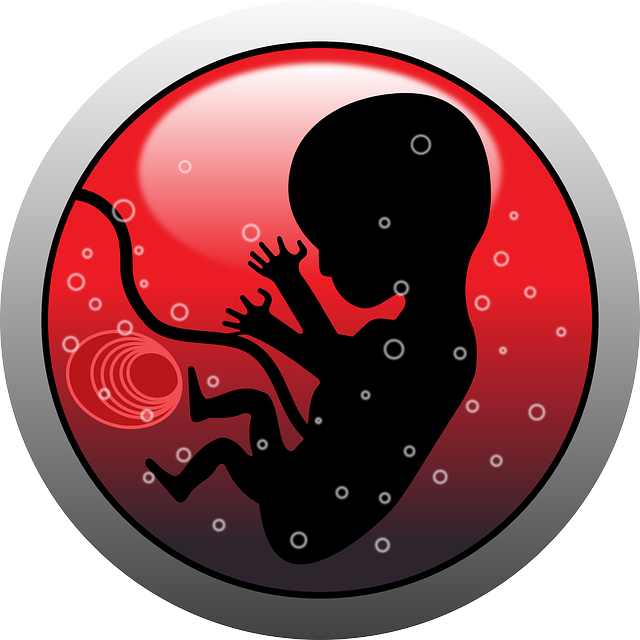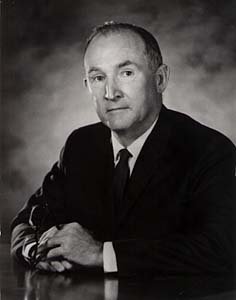INTUITION – What Happens Beyond The Discursive Use Of The Mind?
Table of Interests
Today, you and I will quickly take a look at the topic “INTUITION – What Happens Beyond The Discursive Use Of The Mind?”.
This has become necessary as we have sen overtime that several individuals have been searching for topics related to the above topic INTUITION – What Happens Beyond The Discursive Use Of The Mind? and such accepted a guest post about it from a friend.

However, if you are among those that have been searching for answers to [how to access your intuition, how to use intuition effectively, how to get in touch with your intuition, how do i know my intuition is right, how to listen to your intuition in relationships, trusting your intuition in relationships, follow your intuition meaning, how to connect with your intuition, INTUITION – What Happens Beyond The Discursive Use Of The Mind?], then you can see that you are not the only one.
Nonetheless, you shall get all this information right here on this blog.
INTUITION – What Happens Beyond The Discursive Use Of The Mind?

An adult tells from the perspective of that time: One day at the age of about ten he is visited by a school friend.
The parents are not at home, mother runs errands, father is at work.
The boy comes up with the idea of showing his father’s weapons to his friend.
The narrator stresses that he usually not showed himself to be irresponsible as a child and that even then he knew that one was not allowed to mess with the guns and, above all, that he should stay away to insert the ammunition.
The two boys are looking at the latest purchase when suddenly the phone rings.
It is the mother who sounds very worried and even uses a pay phone to call home.
What she had never done before.
She warns urgently not to do anything dangerous and, above all, to stay away from the gun cabinet.
The narrator investigates the matter.
Despite his young age back then, he knows cameras and microphones well, as he says, and can’t find any hidden installations, however much he hopes to find evidence to justify his mother’s call.
Even as an adult he still wonders about this episode and says, although he is a scientist, he can’t explain what moved his mother (who herself thinks a lot of intuition) to her action and who he later asked about it.
Do you know similar phenomena which occur in your life and to which you do not pay much attention, but which nevertheless let something sound that makes you remember these events?
I speak of intuition.
Intuition is viewed and valued very differently. Some people ridicule, others glorify it. And others just find it normal.
But nobody can deny the existence of intuition.
Intuition is slippery and cannot really be grasped or described solidly. Especially if you have an intuition and then think about it further, the security slips away, whether it’s still there or already gone.
Next of a gut feeling, I would also describe intuition as a head feeling (note, that we already include parts of our body in our expressions of it). Something somewhat far back, tries to report something about a particular meaning.
It is like the delicate stroke of a feather, which I only notice when I am attentive to it and not distracted by too many stimuli.
Intuition roots from bodily and mind related practice and abstract knowledge connected to experiences.
There is an empractic self-knowledge which represents a trinity of bodily, felt (tuned) and informed self-knowledge. Successful empractise is based on the ability of an original, non-reflected ability to open up the respective situation.
In its functional lust, the empirical appears as a concept-less flow.
So the body knows more about our possibilities and impossibilities, about our goals and intentions than we know.It understands more about us than we can explain to ourselves.
In its sensuality it gives meaning, which all too often appears to us as nonsense.
Empractically, we feel life in its self-preserving and self-enhancing self-perspectivation and in this sense we all too often use terms like soul or spirit to express the tendency that carries our life.
But this bodily-mental knowledge is knowledge of what we want.
But wanting is a body mood and a will without will. It is will without should, will against will, want against will.
In the empirical the will of itself is certain of itself and through this we are certain of ourselves.
People Aren’t Arrows
We sense that there is something not quite right about all this goal-setting, straightforward thinking and determination.
Once you made the experience that a straightforward attitude towards another one left you frustrated and caused a conflict you maybe have thought about your behavior as not very wise in retrospect.
As we today talk massively about “awareness” and “consciousness” we also sense that this is a new age phenomena and people may understand “being aware” as a controlling device as to make ourselves awake to our standpoints or goal related desires.
In particular, to “achieve” things.
But intuition – and also what the dogma of, for example, Buddhist teachings is not about – is self-consciousness in the above sense.
Indeed, self-consciousness can be experienced as a discomfort, a great uneasiness towards life.
Intuition could be described as the opposite of self-consciousness while at the same time it is probably the most conscious way of experiencing a lively moment – without pressing determination. I found the term “Empractise” to describe this phenomena.
“The term Empractise is a gracized neologism with the basic meaning “bodily integrated action, execution knowledge”.
source/German Wiki
Strictly speaking, empractic action cannot be attributed to a self-conscious person, but to a selfgoverning person. Therefore, empractic action is behaviour in which something happens to us that goes beyond self-confident action. Empractic action is also goal-oriented, but the goal is neither single directed nor ambiguous.
Have You Ever Tried To Do A Little Guessing Test?
I sat together with my man once and because we are real card players, I told him to take half of the stack and I would want to guess if he held a black or red suit in his hand.
What did I notice? The more my excitement increased and the stronger I wanted to be right, the more difficult it became. But if I stayed relaxed, I got better.
That can of course be a great self-delusion. From the result I was perhaps a little bit over the chance.
But what was really interesting to observe with me? That intuition is really very fleeting.
So you can’t say that intuition never deceives.
Even though I would say that when it comes to true intuition, it never deceives.
And the deception to which I succumbed cannot have been real intuition.
Now, of course, I have a duty to explain what true intuition is when I make such a bold assertion.
Indeed. This can probably only be explained and felt with the help of examples that really happened.
How to define a term or an experience you are always allowed to follow your own trail of explanation.
You can use the given definition.
But that does not mean that you take it for granted on a total. You can as well add your own definition of intuition and attribute to the great realm of human experience. As everything is just a process of changing matter.
When I talk about intuition I do mean:
- The realm of thinking (mind)
- The realm of doing (body)
- The space in between 1 and 2 as a “route” for information travel
Unfortunately, I must divide this not separate ones but for a better understanding I did it.
… there is a kinetic intelligence that cannot be separated from emotional and operative intelligence.
The unity of these three forms of intelligence could be called empractual intelligence.
All three forms of intelligence are essentially mediated by mimesis, which creates a we-intelligence in a successful game: I know what you want, because I want what you want.
Personally, I can give you two examples where I found my intuition worked to the point.
Thirteen years ago I had the clear impression that I was pregnant.
For the very first time in my life I had the conviction: I am pregnant! (never became pregnant before) Where did this thought come from? Of course, there is a story before hand. It was, that my former husband and I decided on having a baby.
After that I was becoming more conscious towards my bodily appearances in a way.
Not, that I did anything related like measuring the temperature or any of this forms of observing myself. But the day I was feeling that I could be pregnant, I decided to do a pregnancy test.

I went to the drugstore, bought the device and went to the bathroom. The result was disturbing. It was negative!
I was kind of insulted by the result and thought: “Nah … that cannot be.
I don’t want it to be negative and the reason why its not a positive result may be for the very simple fact that it was too early for the device, hence, it was not precise enough.
The chemicals in my blood hat not shown up in a significant amount to reach the urine.”
Some days later I repeated the test and it was positive.
Knowing Physics Without Being A Physicist
My second example is related to an activity.
When my son was younger we sometimes went to the playground near by.
There, a hanging basket gave me a chance to throw balls. I remembered Sigourney Weaver in this grandiose scene in Alien 4, where she played basketball with the crew of the spaceship “Betty”.
She threw a ball from the distance backwards and it went straight into the curb! I was so impressed by this elegant action that I wanted to try it myself. I was never good at ball games and actually was afraid as a kid to play with my classmates who hit me hard.
Even from standing right underneath the basket I missed it.
But I thought to give it a try and do it anyway to see what might happen. Childhood long had passed.

I placed myself a few yards away from the basket, turned my back to it and threw the ball! Flipped my hand wrist in a relaxed but somehow determined way.
Interestingly, the lesser I cared about the result the better the first try came out. Mostly, I hit the basket! I knew in the very back of my mind that I should not impart the attitude of clenched teeth but to remain relaxed and somehow not “interested” in the result.
The body analysis connected with it takes into account the fact that all our knowledge, thinking and acting is bodily mediated, that the human being is a living being, a Trinitarian being, which is determined by body, mood and brain. All our thinking and acting is based on the unquestioned ground of the body and all knowledge points back to it and receives its meaning from there.
My intuition on that proved me right.
Always, when I went to the playground to throw some balls the first or second ball came out perfect.
But when I started to repeat hitting I got bad results. I know you might not think of this as intuition but maybe just a matter of self trust.
That is also correct. Because intuition is related to self trust, in my opinion.
How on earth can an unskilled player like me make the calculation?
How could I make it that would lead to the ball taking the right trajectory and finding the narrow passage of the basket? How high and how far and with how much force did I have to throw to hit? Actually, I was always thinking of myself to be bad at maths and would a teacher have asked me to write down the calculations I would have greatly failed. So, an inherent mathematician lives inside of me, right?
This process was not calculated coolly but intuitively by me, and it simply happened. Behind it stood naturally also a will, this may happen in such a way. But not too much, because otherwise the will would turn against me.
In the empirical we experience that it is possible not to think of something and to realize the desired precisely through this. In this way we experience an original experience of skill that opposes modern hyper-reflection and the compulsiveness of the desire to succeed that is associated with it, which often leads to the failure of a desired action because one wants it. The demand to deliberately do what one should is precisely the guarantor of the failure of the intention.
Now, in order to hit the basket every time, I of course would have to practice way more. But as I was not interested in becoming a skilled player I left it at that. The sheer experience and the joy it created for me was good enough.
So, what else was intuitive about this action? It was the very Hintergedanke, that what I once had seen having been done from another human being that I might be able to do that, too.
But it’s more than just that. Somehow I knew for sure that this was going to work, despite my bad experiences with balls and the negative conviction “I am bad with balls, maths and physics”.
My so far experiences with ball games in general let me do my estimation.
Other intuitive measurements in physical laws would cause me to fail as I am having not enough (Em)practice in sports like Billard or archery.
The (psychological) desire to want to experience something about oneself and one’s personality or to see it confirmed, what we intuitively know, is already an indication of inherent knowledge within us.
Testing Who You Are
Unfortunately, self insecurity gets in the way and some of us tend to take personality tests too seriously and even acknowledge them as “set” when a person of authority advises us to do so.
As soon as I no longer have self-government, I leave my safe shore and start rowing insecurely.
“Who am I then?” One asks oneself.
See Other Articles People Are Reading
- Cry Me A River – From Biology To Psychology Of Tears
- Redefining ‘Health’ For The 21st Century | Health Care Changes In The 21st Century
- Missile Technology – The Weapon Of Destruction
- Discussing Day-to-Day Fear | Types Of Fears & How To Overcome Them
- Electromagnetism – Antenna Radiation Patterns | How To Read Antenna Radiation Patterns
- Do Robots Really Have Emotions? | Can Artificial Intelligence Feel Emotions?
And how do I have to be so that I am no longer the one who is shown to me in this psychological test? With this you move away from your intuition.
Others reject such tests a priori or do not take their results seriously.
Personality tests such as this one are not very reliable, they clearly cause or make it very likely to manipulate the answers – though the tests could be seen as some exercise and also to get involved with the questions asked.
But to give honest (intuitive) answers can be difficult insofar as wish and actual feeling and acting can contradict each other.
But Is It Possible To Make Intuition Visible?
Can one get honest answers? If you want to find out how people really tick and can’t completely trust their consciously made statements, how can you then approach their unconscious and intuitively understood answers? And why should one want this?

George Kelly, an American psychologist, already tested this at the end of the fifties in a procedure he called Repertory Grid.
This method for capturing intuitive beliefs and assumptions has since been further developed.
The Repertory Grid is an interviewing technique which uses nonparametric factor analysis to determine an idiographic measure of personality. It was devised by Kelly in around 1955 and is based on his personal construct theory of personality.
Before you rely on it and think that you have actually found a tool that works almost error-free, I would like to emphasize that you should carefully enjoy any set knowledge that is connected with humanity and its embedding in the world.
Though I found this method to be flawless.
While the method itself is almost appearing perfect the circumstances under which it could be used (like forced upon people) can be not. The outcomes and their usage are another topic.
It also can be seen as an attempt to overcome uncertainty.
Uncertainty is probably the most disturbing thing for humans.
In order to transform an uncertain thing into a certain one, one could think that all knowledge of the whole world now could be stored in a huge data-base and, as a result, there would be no uncertainty any longer.
But let’s dive a little deeper into the method of RepGrid:
How To Avoid Determinism
Based on the psychology of personal constructs, George A. Kelly developed the Role Construct Repertory Grid (also called Kelly Grid in Germany). The term Repertory Grid is often used as a short form.
Role Construct Repertory Grid procedures work with a repertoire (“repertory”) of significant elements from a person’s experience, such as roles (e.g. colleagues), groups (e.g. departments), but also situations (e.g. rituals), objects (e.g. products) and abstracts (e.g. brands). With the help of dichotomous descriptive dimensions, the so-called constructs (e.g. good vs. evil or innovative vs. traditional), these elements are individually assigned properties by the respondent.
In addition, a quantitative evaluation, mostly Likert-scaled, takes place, so that at the end a grid (German: Gitter, Matrix) with numerical values is created. Once all elements have been evaluated on the basis of a construct pair, new elements are compared with each other to form another construct pair.
This process is repeated until the interviewee no longer thinks of any new distinguishing dimensions, i.e. his repertoire of constructs for the given elements is exhausted.
Due to the systematic comparison and the complexity arising in the course of the interview, it is practically impossible to exert any purposeful, deliberate influence on the result.
The RepGrid serves to determine and evaluate subjective associations of meaning. In Kelly’s sense, it is intended to provide an insight into the construct system of the individual.
The human being describes his reality with conceptual abstractions (constructs), which were formed by his individual experiences.
He scales them in a given matrix with regard to suitable elements that represent the framework of the investigation. The interviewee thus depicts his individual, semantic and psychological space in the form of a grid filled with numbers.
The Repertory Grid is thus a method with the support of which qualitative interviews with the corresponding advantages can be conducted to investigate subjective perceptions and cognitive processes and thus enables a better understanding of the subjective meanings of the interviewee.
source: https://de.wikipedia.org/wiki/Repertory_Grid – translated from German to English
The things we consciously deal with are only a small fraction of what we really (intuitively) think and experience about the world and ourselves.
Pure determinism is therefore basically a guarantee that we not only deceive ourselves but also have little peace with the world around us. Strong determinism is essentially insulting in that we intuitively know how little it is suited to reaching consensus.
We remember experiences where we wanted another one to be convinced of a particular standpoint and failed greatly as we were way too determined to “make one understand”.
Even the wish this person should obey to what we just have said.
Politics and Religion are in particular a realm where the debates get quite heated. So having a closer look about how systems do behave might be a servant to distract oneself from juicy media headlines.
Overcoming uncertainty (correct predictions) and reacting times
In this interview Peter Kruse, honorary professor of organizational psychology at the University of Bremen and professional consultant for collective intelligence, states:
“The fact that its more and more impossible to predict developments in business and society is due to the high degree of connectvity in the global markets.
The worldwide networks are at any time ready for resonance effects. We are confronted with an enormous compexity and speed of change.
Therefore, desicion making under conditions of uncertainty is no longer exceptional but simply normal. In situations like this the only way people have a chance is by acting more and more intuitively.
Decisions are made on the basis of unconscious criteria based in the limbic system of the brain.
These cirteria are the result of the lifelong learning process of a person.”
Kruses company netxpractise, using computer science, developed a method based on making it possible to reveal and measure peoples value systems; allowing the participants to use their own language (expressions). Kruse stated that “a questionnaire is only as intelligent as the one who created it.
” He called his method for example “Qualitative interviewing”.
You can download a little presentation from their website. Here is an excerpt of it:
When individual intuition is no longer sufficient and the usual linear methods of surveying large groups of people reach their limits – this is where the nextexpertizer computer-assisted interview technique can overcome the restrictions and boundaries of traditional market research tools and open up totally new dimensions.
Through analyses of market and social studies, as well as corporate and management culture, nextexpertizer reveals those forms of emotional resonance which make people act the way they do.
The interplay of cultural forces brought to light by the nextexpertizer makes it possible to gain a clearer understanding of contexts and interdependencies and concentrate on what is truly essential.
We could say that we intuit the right things but act in times upon wrongly chosen decisions out of wrongly applied methods (of science or interview techniques/marketing researches).
I often thought about whether I trust the human race and people and see their good qualities or if I should be critical about the ability of humanity on the total to do the right things.
I think the more I carry distrust in myself and others the more I pay into the pessimistic notion of the human realm in total and feed distrust. But when I decide to take up a more optimistic and trustworthy notion the better I feed the circulation of notions altogether.
But I would like to add that changing things is limited and not everything can be influenced on which I wish it should be.
But of course, its good advise to see the necessities in order to react appropriate to an upcoming event and even have some reaction time in advance (think of a company or governments and their unprepared state in a major crisis as not having seen it coming). It also would be unwise to ignore that there are always destructive forces in the game next to the constructive ones.
Computer Intelligence
RepGrid reminded me on what new kids appear on the block.
The tau intelligence, a computer program which is under development right now, designed by Ohad Asor – as attractive it might be to assume that intelligent methods in the appearance of computer code and a human-to-machine-to-human communication basis can catch what it is intuitively known by us people – I still ask myself what is hoped to be achieved through an AI like this.

Is the intention of the builder the same as with that of Peter Kruse? To understand and react on societal and economical (rapid) influence and their applications onto the human existence?
I feel that people refer to an artificial intelligence like tau as some godlike entity or oracle which will help us to find consensus – some companies seem to associate their names to the desired outcome like the Oracle Corporation.
There is a focus on making things “faster”. I haven’t made up my mind though and will probably read and research a lot more to find my position in that.
The discovery of slowness
As much advantages speed has, it also has downsides and is causing the problems we currently face. Some people address that reducing the technological pace would be a good idea as well.
Right now it seems that we deliberatly put ourselves to the speed of the machines we created and that the human serves the machines in order to hold the pace.
Also, it doesn’t seem to correspond what we also found out about intuition: the very connection to the bodily existence and the vast incomprehensible space of embodied knowledge.
Are there examples of episodes where human intelligence prevented major damages to a suddenly occurring event which can be taken as best practices? This must be postponed to another article. Though I would like getting examples.
Can a machine indeed interpret human intuition without being an organically grown entity itself?
How long must an artificial intelligence learn in order to grow out of it’s infancy to a fully mature adult intelligence?
Ten, twenty, or hundred or a hundred thousand years? When does the process come to an end, when will be the final state of maturation reached? And is it wise to use it meanwhile as a decideability-tool?
This is a matter of investigation.
After all, is humanity on a total not already an intelligence itself which operates alright, only, that one cannot grasp it from an individual perspective and is too attached to economy and the related fears of losing what one is used to use? Haven’t we already understood Einsteins Equation of timespace and our place in it?
Does instinct equal intuition?
Some scientific papers declare that “instinct” should not be mixed with “intuition”. Is an instinct not already an intuition?
Our sensations grow out of our incorporated experiences and inherent knowledge like sensing danger and decide for leaving a scene estimated as not safe before the real danger actually appeared.
People serving the army or protecting others from assaults train their instincts and learn to trust their “spider-signals” to sniff out dangerous moments. This relates also to the phenomena to be stared at from behind – a commonly shared experience.
An instinct is considered a “not learned” reaction. I have noticed that I sometimes confused these two terms and assigned an instinct where it was already an intuition.
Intuition is often confused with two other words that also start with the prefix “in-”—specifically, instinct and insight. An instinct is a reaction that is innate, for example, shutting one’s eyelid automatically in response to a puff of cold air.
It is important to distinguishthe two concepts by the fact that, contrary to instincts, intuitions represent learned behavior.
Indeed, … , learning and intuition are inseparable. Describing intuitive reactions of behavior as “instinctive” then should only be considered metaphorically (e.g., as in a tennis champion’s “instinctive reactions” in a game)
On the website detectivetraining.com I found this text:
What Are “Gut Feelings”?
Ever wonder how some investigators solve cases with little proof or evidence? They seem to know the truth about a person or situation that isn’t apparent to others? It’s called “gut feelings” or intuition. So what are gut feelings?A gut feeling is merely a judgment that has come to the surface with spontaneity. It can also be called a cognitive experience, an educated guess, speculation, inference, conjecture, extrasensory perception, etc. Frequently, it is a vague, hazy sense of direction.
This does not make it necessarily less valuable, only more difficult to evaluate.
Gut feelings do not have a logical sequence; they leap across chasms of missing information, make sideways detours, and bring together unusual, even illogical combinations.
Gut feelings have no restrictions; they are a product of the mind’s capacity to do many things at once without being aware of them.
But gut feelings have their shortcomings, too.They suggest a conclusion without total evaluation of all variable factors. And, if a situation is not within the limits of previous experiences, then a gut feeling can be risky in some situations.
Read this short paper from Interviews with Criminal Investigators from KRIPOS, the national Norwegian unit for fighting organised and other serious crime. There, intuition also takes on a significant role.
Bottom Line
Intuition is an ordinary human ability.
We must not be heroic about it.
There is no heroism in intuition. It comes silent, humble and doesn’t show up as a grand self praising figure. There is no such thing than “supernatural”, only “natural”.
Intuition needs space and not so much distractions or a stuffed mind and schedule.
Though, when one is skilled in reducing stress, to still his mind even within aroused times and standing in the midst of a crowd, he created his own intuitive space. It’s a “listening” quality, where resonance can be detected.
Intuition is already scientifically investigated and for some scientists it actually was the essential supportive “agent” in their findings.
What makes intuition vulnerable is exaggeration and the over-use of the term itself as well as a naive form of believing in a human “super-power” or “paranormal forces”.
There are forces we might not understand and the reason we might be so excited about intuition – I think – is, that we unlearned to trust this intelligence in others and we forget to keep notes about those moments of our own intuition which have some significance to us (without praising them over the top).
I would like you, dear reader, to use the comment section as space to tell an episode of intuition to contribute more examples. Personal narration has power.
Some quotes on intuition
“When you reach the end of what you should know, you will be at the beginning of what you should sense.”
― Kahlil Gibrán, Sand and Foam
“intuition is always right in at least two important ways;
It is always in response to something.
it always has your best interest at heart”
― Gavin De Becker, The Gift of Fear: Survival Signals That Protect Us from Violence
“Insight is not a lightbulb that goes off inside our heads. It is a flickering candle that can easily be snuffed out.”
― Malcolm Gladwell, Blink: The Power of Thinking Without Thinking
“Come from the heart, the true heart, not the head. When in doubt, choose the heart. This does not mean to deny your own experiences and that which you have empirically learned through the years. It means to trust your self to integrate intuition and experience. There is a balance, a harmony to be nurtured, between the head and the heart. When the intuition rings clear and true, loving impulses are favored.”
― Brian Weiss, Messages from the Masters: Tapping Into the Power of Love

That’s the much we can take on the topic “INTUITION – What Happens Beyond The Discursive Use Of The Mind?”.
Thanks For Reading
See Other Articles People Are Reading
- Cry Me A River – From Biology To Psychology Of Tears
- Redefining ‘Health’ For The 21st Century | Health Care Changes In The 21st Century
- Missile Technology – The Weapon Of Destruction
- Discussing Day-to-Day Fear | Types Of Fears & How To Overcome Them
- Electromagnetism – Antenna Radiation Patterns | How To Read Antenna Radiation Patterns
- Do Robots Really Have Emotions? | Can Artificial Intelligence Feel Emotions?
Leave a Reply